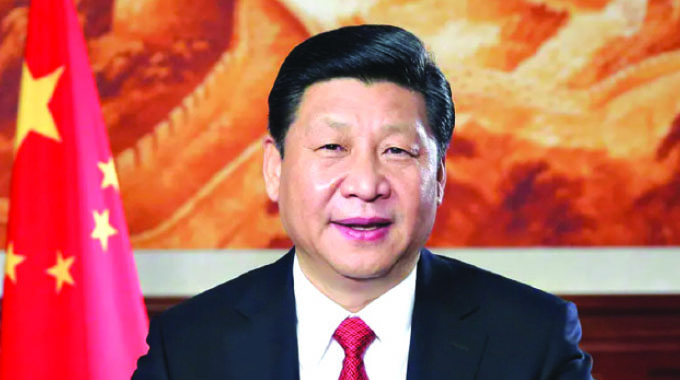Research pathway to solving Zim’s energy crisis

Sifelani Tsiko Agric & Innovations Editor
Energy is at the heart of all efforts aimed at attaining the country’s Vision 2030 of becoming an upper middle income economy, as well as a major driving force behind the attainment of all Sustainable Development Goals (SDGs).
In Zimbabwe, energy still remains a key enabler for many SDGs — from expanding access to electricity, to improving clean cooking fuels, from reducing wasteful energy subsidies to curbing deadly air pollution that each year prematurely kills thousands of people around the country.
SDG 7: Affordable and clean energy aims to ensure access to affordable, reliable, sustainable and modern energy for all by the end of the next decade, speaks clearly about the importance of energy in the country’s national development agenda.
Given rising energy demand and the need to make progress towards substantially increasing the share of renewables in the country’s energy mix and improvements in energy efficiency, the Research Council of Zimbabwe (RCZ) in collaboration with Zimbabwe Energy Regulatory Authority (ZERA) invited research proposals aimed at addressing the country’s major energy pressing issues.
The research call by the RCZ and ZERA seeks to help local scientists and engineers to seek innovative solutions to issues in electrical power generation, transmission, distribution and battery manufacture.
“The proposals should seek innovative solutions to identified operational and developmental issues and thus improve reliability in the generation, transmission, distribution and supply of modern energy and develop heritage based knowledge in the research area,” the RCZ said in the call.
This call seeks to support research that can contribute to producing knowledge on practical and realistic solutions or technologies that are domestically and industrially implementable, as well as improving reliability in the production and delivery of electrical energy.
In addition, the call aims to support local researchers to provide technologies to improve, measure and verify energy storage and to support human resources development in research in the identified and complementary areas.
“Proposals should address issues in energy as espoused in key thematic areas of the National Development Strategy 1 (NDS1), National Energy Policy, Vision 2030 and the National Research Priorities,” the RCZ said.
Energy is a key part in the transition towards a middle income economy.
Finding lasting solutions to issues related to energy savings, cost-effectiveness and readily available solutions to power generation, storage and power delivery remains a major issue for Zimbabwe.
In the call, local researchers are expected to come up with innovative solutions that look at boiler tube failures and water chemistry, mobile coal handling plant utilisation and optimisation, root cause analysis on generator winding overheating and the economics of coal washing.
In addition, the RCZ and ZERA, want researchers to address power delivery constraints such as distribution infrastructure security, technical faults and the evaluation of voltage and technical loss performance.
On energy storage, the two agencies want researchers to examine solutions to power density and durability assessment of locally manufactured batteries and the development of local capacity in lithium-ion (Li-ion) battery manufacture.
“Funding is open, on a competitive basis, to Zimbabwean researchers in engineering, physical and social sciences and any other academic disciplines, at local academic institutions, research institutions or Government research departments,” the RCZ and ZERA said.
Batteries are seen as a key element to enable the energy transition, essential for the accommodation of high shares of variable renewable energy sources in the country.
Experts say they contribute, among other things, to the stabilisation of the grid frequency by balancing at all time small gaps between the volume of power generation and the momentous power consumption.
Zimbabwe is facing prolonged power outages that have affected industry, business and domestic consumers.
Power shortages have forced the Zimbabwe Electricity Transmission and Distribution Company (ZETDC) to roll out a load-shedding regime for various parts of the country.
The power shortfall affecting the country is due to electricity generation constraints at the Hwange thermal power station.
Ongoing maintenance works at the Kariba hydropower plant have also reduced electricity generation for the country.
Obsolete equipment, foreign currency shortages, illegal connections and a huge customer debt of $15 billion have also compounded the problems for the country’s energy generation capacity.
Zimbabwe is now targeting to import power from Zambia and Mozambique to ease the power crisis.
The country has also issued permits to private players to generate energy through renewable and non-renewable energy projects that aim to produce additional power to the national grid.
Zimbabwe needs approximately 2 000 megawatts (MW) daily to meet demand, but is generating around 1 000MW.
“Stability in the energy and power sector, including improved supply of electricity, remains one of my governments’ urgent priorities,” President Mnangagwa said at the official opening of the Zimbabwe International Trade Fair (ZITF) in Bulawayo in September this year.
“Efforts are underway to harness our renewable energy potential towards improving our installed power generation capacity.”
The RCZ and ZERA believe that support of local scientists to conduct research is a solid way that can bring about a pathway to the energy crisis facing the country.










Comments